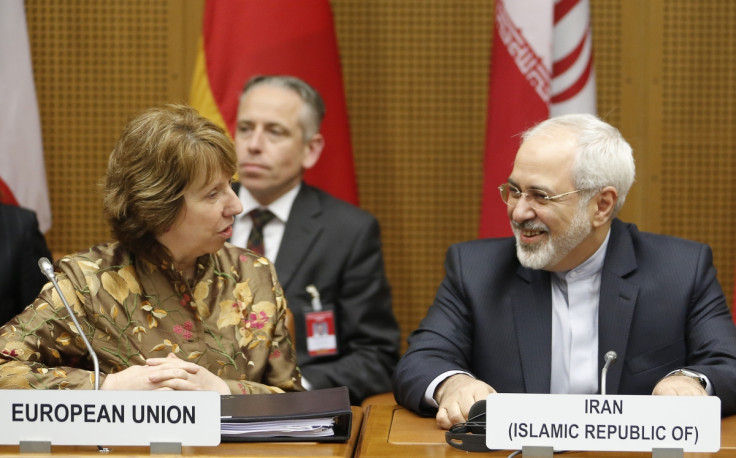Iran Nuclear Talks: Can UK Companies Benefit from an Agreement?

For the sixth time since November, negotiators representing Iran and the P5+1 will this week try to hammer out a deal over Iran's nuclear programme.
This time the eyes of the world are on Vienna and the pressure is on: with the interim Joint Action Plan secured last year set to expire on July 20, the clock is ticking.
The optimism of six months feels like a distant memory. The Joint Action Plan has, in reality, had very little impact. The average Iranian has seen no improvement in quality of life pertaining to the interim nuclear deal.
The headline figure was the $7bn in frozen Iranian assets which were going to be made available to Tehran again, in return for a moratorium on nuclear activity. Only $4bn has been unfrozen – the equivalent of $52 to every Iranian citizen – and even in the days after the agreement was signed, it was hard not to be underwhelmed by the agreement the negotiators had "achieved".
Urging the House of Representatives not to impose fresh sanctions shortly after the deal, Secretary of State John Kerry boasted how the $7bn was a drop in the ocean. After all, sanctions dating back as far as 1979 have frozen more than $100bn of Iranian assets.
Since then, enthusiasm has waned, as both sides engaged in a bout of mudslinging played out in the international media. The US, which is clearly leading the P5+1, is adamant that Iran must compromise on its nuclear ambitions if a deal is to go through.
Iran feels that as a signatory of the Treaty on the Non-Proliferation of Nuclear Weapons (NPT) it has the right to hold a certain number of centrifuges for non-militaristic use. The bickering has been unedifying.
Hoping for Change
People in Iran along with companies in the west will be hoping that the talks result in positive action.
Stories have been appearing in the US press all week about how American firms are readying themselves to reinvest in Iran, should the sanctions be removed this month.
Companies have been gearing up to tap a consumer market as large as Germany's, an economy with a stock market the size of Poland's, a telecoms market with 55 million mobile phone owners and 200,000km of roads in various states of disrepair.
The evidence shows that US firms have been benefitting from the easing of trade sanctions. Trade turnover between the US and Iran was $360mn in 2013, an increase of 42% on 2012.
Energy infrastructure in Iran, which has the world's fourth largest oil reserves, is crumbling. While China and Turkey have taken advantage of the absence of western companies, they lack the expertise of the European oil majors, which is why Iran's oil minister Bijan Namdar Zanganeh formally invited Shell and BP to take part in the country's oil and gas projects earlier this year.
By right, UK companies should be every bit as excited as their US counterparts – but the anticipation is more muted here, and that's not just a result of classic British stoicism.
The Department of Business, Innovation and Skills tells IBTimes UK that it has not been encouraging UK firms to explore opportunities in Iran, a sentiment that's confirmed by a senior UK diplomatic figure who wishes not to be named.
"The government's position here has been to not encourage businesses to indicate that there would be any business prior to a nuclear deal. It's meant that businesses that visit Iran have done so to reopen their files, re-establish connections, explain that they're still here and in what form, but they can't anticipate signing contracts," he says.
Firms from elsewhere in the world, however, have been conducting trade missions to Tehran to actively instigate future opportunities. If British firms are doing this, it's very much on an unofficial basis.
The main problem lies with an issue covered in depth here earlier this year: the informal banking boycott of Iran, which limits the amount of trade that can be done, since banks with US operations won't process the payments.
The Joint Action Plan from November included provisions for the P5+1 to establish channels of payment, but nothing has been done on this front to date, meaning any UK company wishing to trade with Iran will not only struggle to fund it, but faces the possibility of being blacklisted by the banking sector.
Even in the pharmaceutical sector, in which medical goods are exempt from sanctioning, UK companies have, in the past six months, not been able to export into Iran using banking channels.
If Iran opens up, it could be a destination for British goods and services in the energy, engineering and pharmaceutical sectors. Those close to the discussions however do not speak overly optimistically about this happening.
With negotiators seemingly unwilling to budge on the issue of Iran owning centrifuges, talk over recent days has been of extending the Joint Action Plan for another six months, something which would not help anybody beyond giving negotiators a stay of execution.
Unless there is clear, practical guidance as to how UK and other EU companies can trade and finance their trade with Iran without fearing repercussions from the banking sector, the discussions won't serve companies anywhere outside of the US in a positive manner.
© Copyright IBTimes 2025. All rights reserved.






















